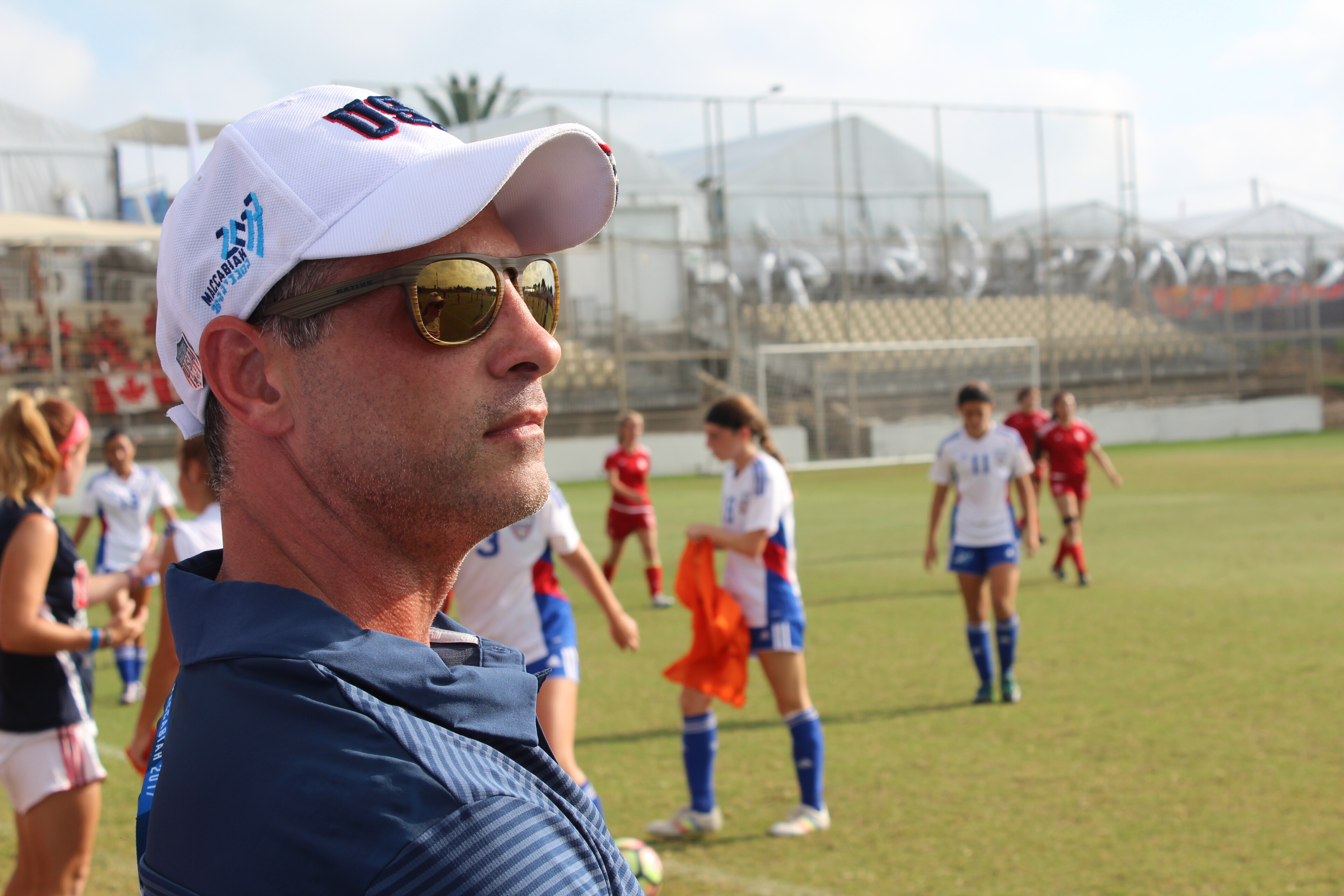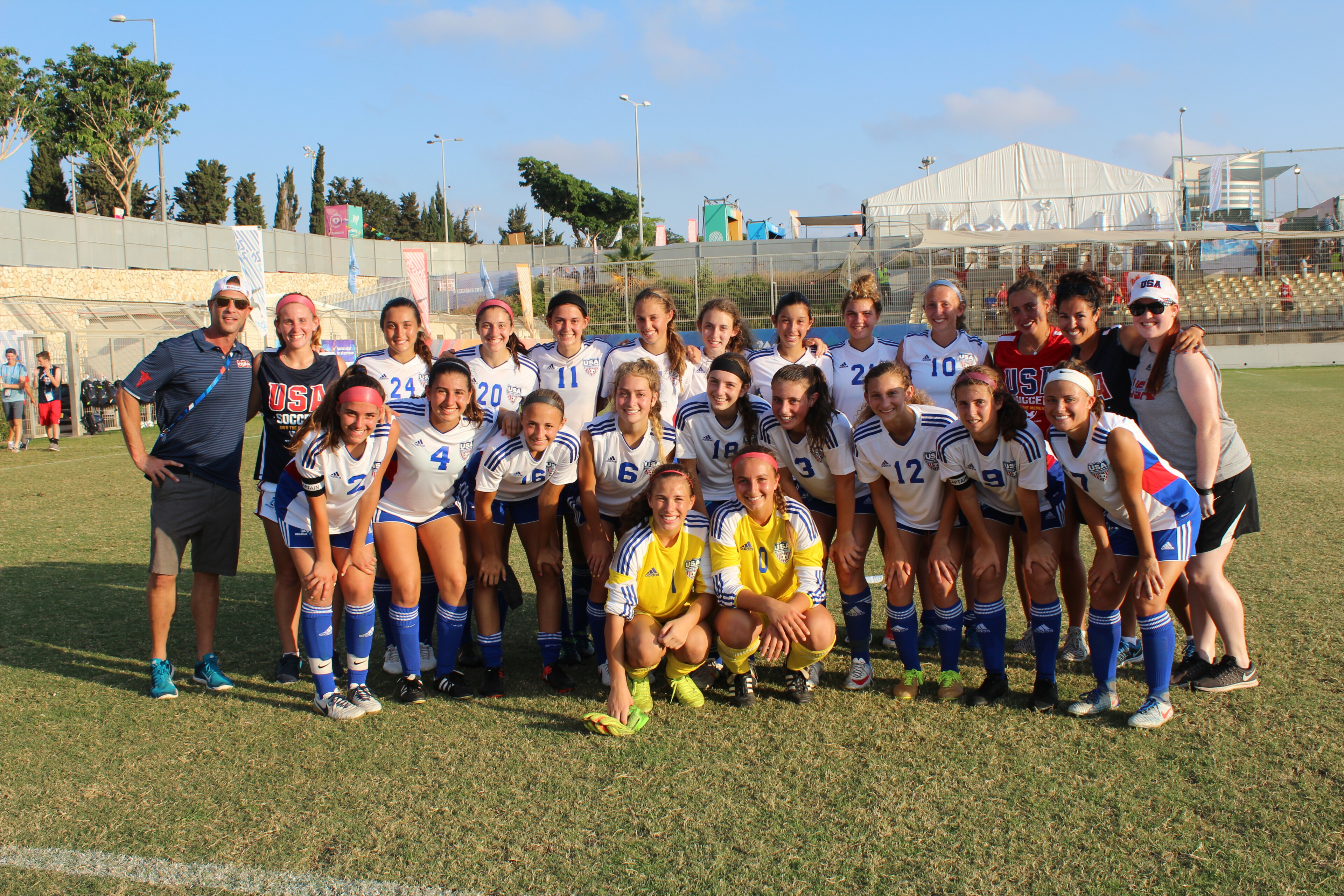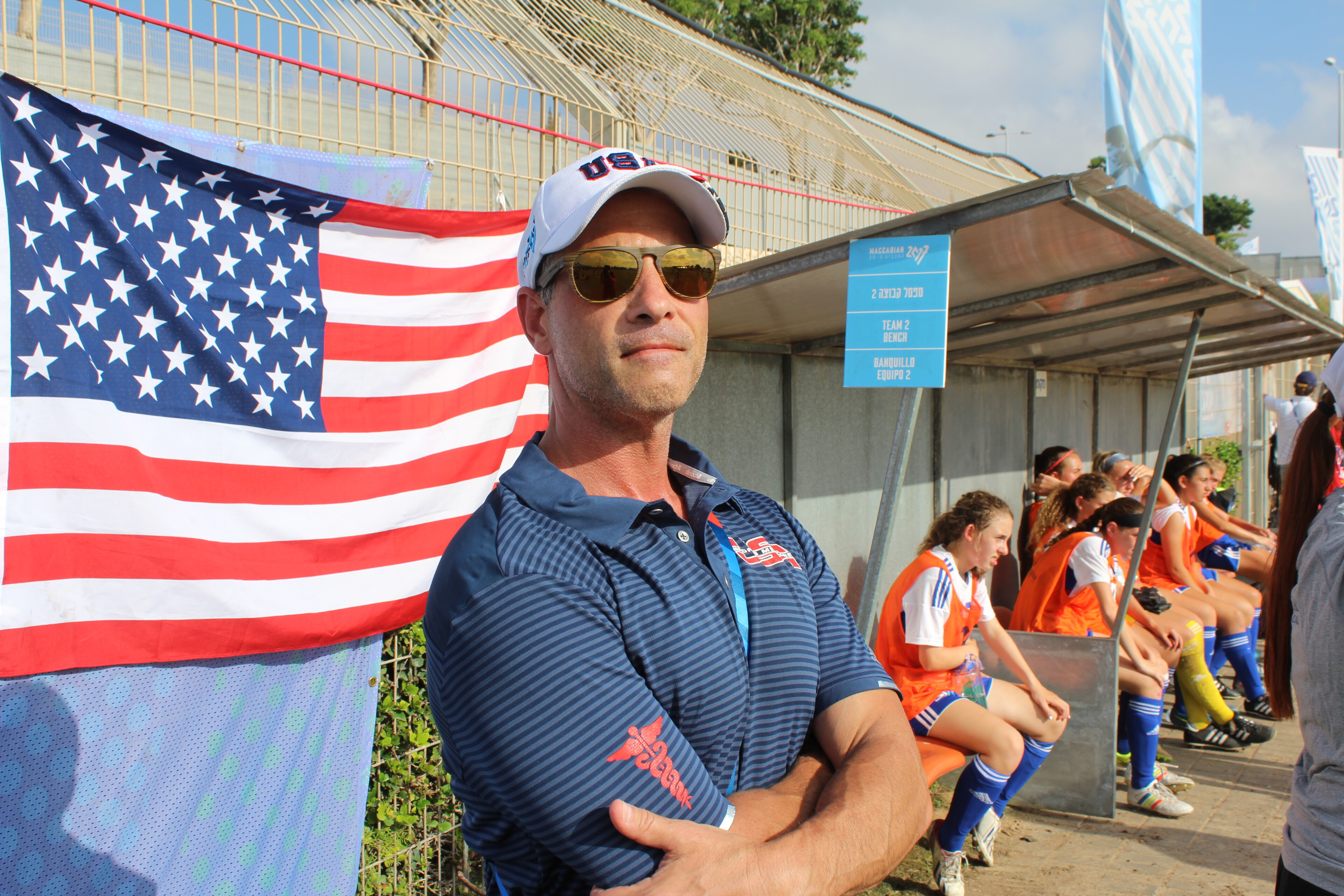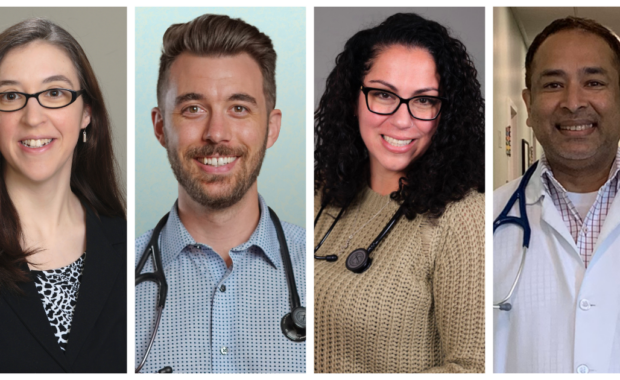PA at Maccabiah Games in Israel
July 31, 2017
By Hillel Kuttler

HAIFA, Israel – With each goal of a 4–0 shutout over Canada, a member of the United States’ medical staff applauded and offered congratulations as if he were a soccer player’s parent sitting in the bleachers.
This was a semifinal game in the 15–18-year-old girls division of the Maccabiah, an international, multisport competition held in this country every four years and dubbed the “Jewish Olympics.” The two-week event concluded Tuesday, July 17.
The July 13 contest at a seaside field here was one of several where the staffer, Stu Brodkin, could be more of a fan rather than the PA he is – although, to be sure, he stood throughout the game beside the athletic trainer near the U.S. team’s bench, ready to assist if needed.
Every day of the three weeks he spent at the Maccabiah, including for practices prior to the competition getting underway, Brodkin, a PA in emergency medicine, held morning and evening clinic hours at the hotel housing most of the United States’ junior-division athletes. For some of the contact sports – such as hockey, judo and rugby – Brodkin and the eight physicians on the Americans’ medical staff patrolled the sidelines, too.
The nine had plenty to do throughout the Maccabiah, responsible for the medical needs of 1,100 American athletes and coaches in four divisions: junior, open, senior and paralympic.
Brodkin also enjoyed leisure time on his first visit to Israel, accompanying the rest of the U.S. delegation on a week-long tour of historical, natural and recreational sites.
Being so far from his Orlando, Fla., home required Brodkin to deal with some jet lag. But even though Israel lies 6,000-plus miles from Orlando, it’s not like the travel fazed him. For the past two years, he’s regularly commuted nearly 2,000 miles, to Oakes, N.D.

At Oakes Community Hospital, a 20-bed critical-access facility, Brodkin is the only medical professional on duty for a 10-day assignment every month, 14-16 hours a day. He treats patients in the ER, covers the hospital and holds clinic hours. Oakes’s rural, agricultural region often brings him patients who suffered accidents on their farms. The large population of elderly residents means that Brodkin treats many with COPD and heart problems. He dispatches those requiring specialized care to larger hospitals in Aberdeen or Fargo, both more than a 90-minute drive away.
Brodkin, 47, “is a skilled and confident provider in our emergency department” and can handle “any situation that presents itself,” said Oakes president Becki Thompson. “Stuart provides the consistency and clinical skills necessary to best serve the needs of our patients.”
The arrangement agrees with Brodkin. He is flown to Oakes and back; is provided a rental car; and lives in an apartment belonging to Catholic Health Initiative, the hospital’s owner. His monthly salary earned in intensive fashion, Brodkin then has the lion’s share of each month to himself back in Orlando, where he lives with his three daughters. To keep active, he picks up shifts in Orlando at an urgent-care clinic, an allergy clinic and an integrative-medicine center.
Marc Backal, M.D., the lead physician on the American medical staff here, said he’s happy to have persuaded Brodkin to work at the Maccabiah.
“Stu is a friendly, easygoing, highly qualified, energetic PA who functions at a level at or above many physicians. His ER training and background make him a perfect fit for multitasking a variety of medical situations both on and off the athletic fields,” Backal said.
Brodkin’s clinic hours at the Maccabiah brought predictable issues: ear infections, follow-ups on broken bones, kids whose medications ran out.
There’ve also been plentiful challenges during the sports action. A bug flew into a soccer player’s ear, necessitating the bug’s removal and eardrops to prevent infection; another soccer player was kicked in the ankle and got a contusion. A basketball player went up for a layup and landed awkwardly on his ankle. For a wrestler, it was a fractured radius when thrown to the mat. A coach with depression was treated and flown back to America. A runner whose Crohn’s disease flared up was put on Predisone. One coach was concerned when an athlete was discovered sleepwalking.
Brodkin’s most difficult case involved a player struck in the testicle by a soccer ball. An examination determined that the player, who wasn’t wearing a protective cup, hadn’t suffered a torsion. Brodkin considered sending the boy to a hospital for an ultrasound to confirm the diagnosis, but decided against it.
The context, Brodkin explained, was unique for the athletes – and the practitioners.
“You take people where the environment at home is under control,” he said. “You bring them here, and they have to adjust to a new environment, the stress of competition, lack of sleep, nutrition patterns thrown off.”

The Americans’ Maccabiah-related medical arrangements were well-designed, Brodkin said. The CareMonkey software program on each provider’s smartphone enabled instant access to athletes’ medical records at each site. For those based in Haifa, three hospitals and two outside clinics were lined up if necessary. That was helpful when one athlete was hospitalized overnight with dehydration to ensure he didn’t have an acute abdominal condition.
“For the most part, everything’s been manageable,” Brodkin said.
On the personal side, the experience was memorable.
“I’ve always identified through sports. Being in Israel through sports allows me to appreciate the experience even more. My Jewish connection allows me to appreciate Israel even more,” he said during the soccer game.
Brodkin expressed interest in working at the 2021 Maccabiah, too, but he’s thinking longer term. The Israeli health system recent recognized the PA profession, and Brodkin said he’s open to moving here.
“I would definitely consider being an expatriate,” he said. “After being here, if I could get past the language thing, I’d love to practice medicine here.”
Hillel Kuttler is a freelance writer. Contact him at [email protected].
Photo credit: Hillel Kuttler
Thank you for reading AAPA’s News Central
You have 2 articles left this month. Create a free account to read more stories, or become a member for more access to exclusive benefits! Already have an account? Log in.




